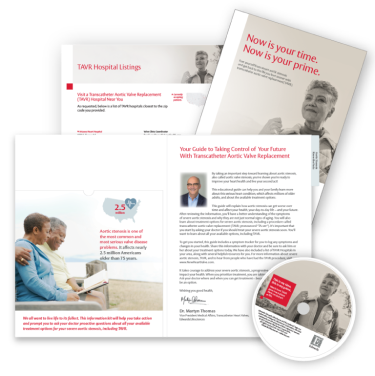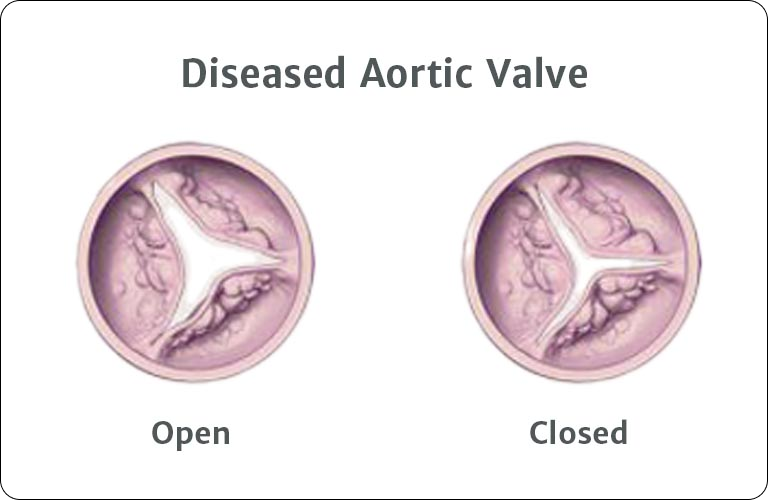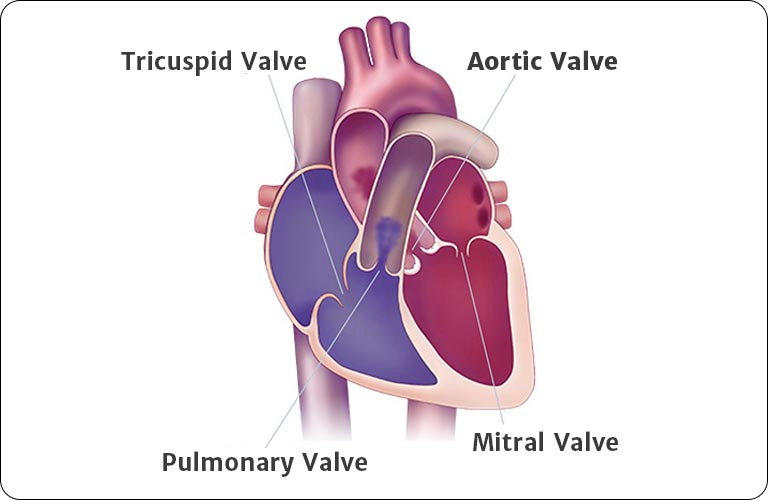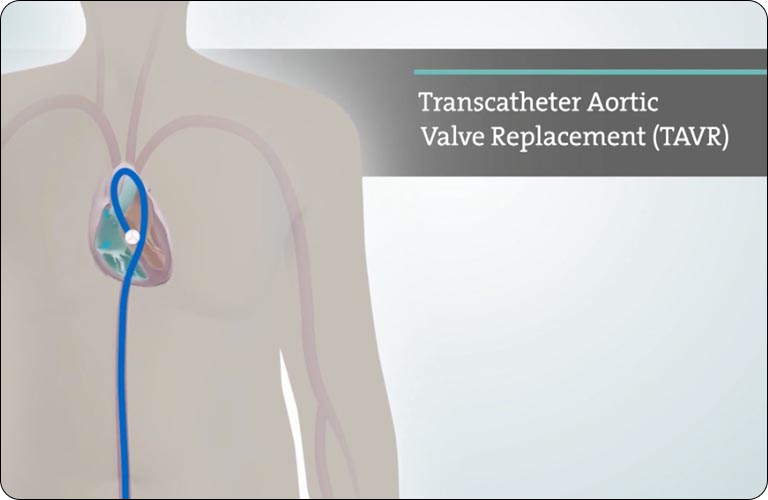The progression of your symptoms should be monitored. Ask your cardiologist how often you should see them, and when you can expect treatment for your aortic stenosis. Use this discussion guide to help you have a productive conversation at your next appointment.
Talk with your doctorWho Qualifies for TAVI1
All severe aortic stenosis patients who are experiencing symptoms can ask for a TAVI evaluation.
If you are aged 75 or older, you could be eligible for TAVI.
If you are younger than 75 years of age, surgery is recommended but you may still be eligible for TAVI.
Additional types of patients who may ask for a TAVI evaluation include:
- Bicuspid aortic valve patients who are experiencing symptoms. Open heart surgery is sometimes the best option, but it is not always the only option.3
- Those patients whose aortic valve has already been replaced but whose replacement valve is failing.4,5
Who determines if I qualify for TAVI?
A qualified Heart Team will conduct a comprehensive evaluation to determine whether the TAVI procedure is right for you.
A Heart Team is a specialized care team of qualified healthcare professionals who work together to determine the best treatment plan for each patient. This team includes:6
- Interventional cardiologists TAVI Doctors
- Cardiothoracic surgeons
- Imaging specialists
- Anesthesiologists
- Cardiac cath lab staff
- Cardiologist
What happens during the TAVI evaluation?
Your TAVI evaluation will be performed at a specialized hospital by a Heart Team.
They will run several tests to determine the best treatment plan for you and to evaluate if you are a TAVI candidate. Some of these tests include:6
- An angiogram to examine how blood is flowing through your heart’s arteries
- An echocardiogram to take pictures of your heart
- Other diagnostic tests which can be explored in our FAQs section
In some cases, you may have already taken some of these tests. However, it may be important that the tests be taken again at the request of your Heart Team. Although it may feel like a lot of appointments, it’s important because your Heart Team wants to make sure they are recommending the best treatment option for you.
Make sure you speak to your cardiologist and/or Heart Team about your treatment options and life goals, as your preference and wished will help decide your treatment.
It's important not to delay your treatment. Ask your doctor about your treatment options
If you're experiencing symptoms like breathlessness and chest pain, it's important to talk to your doctor. Without treatment, up to 50% of patients with severe aortic stenosis will die within an average of 2 years after symptoms appear.2


Want more information delivered directly to you?
Get a free information kit by email or mail to learn more about
What you’ll receive in your kit:
- Education on severe aortic stenosis and symptoms checklist once it becomes severe
- Information on TAVI as a treatment option
- Discussion guide for talking with your doctor
References
1. Vahanian A, et al. EurHeart J. 2021; ehab395. doi:10.1093/eurheartj/ehab395.
2. Otto C. Timing of aortic valve surgery [Valve Disease]. Heart. 2000;84(2):211-218.
3. Das R. Transcatheter Treatment of Bicuspid Aortic Valve Disease: Imaging and Interventional Considerations. 2018 Jul 19;5:91.
4. Makkar RR, et al. Outcomes of repeat transcatheter aortic valve replacement with balloon-expandable valves: a registry study. Lancet. 2023 Oct 28;402(10412):1529-1540.
5. Malaisrie SC, et al. Transcatheter Aortic Valve Implantation for Bioprosthetic Valve Failure: Placement of Aortic Transcatheter Valves 3 Aortic Valve-in-Valve Study. Struct Heart. 2022 Aug 5;6(6):100077.
6. Khan S, et al. The evolving role of the multidisciplinary heart team in aortic stenosis, US Cardiology Review 2022;16:e19.
PP--EU-7601 v1.0





 Australia
Australia
 Brazil
Brazil
 Germany
Germany
 Italy
Italy
 Netherlands
Netherlands
 New Zealand
New Zealand
 South Korea
South Korea
 Southeast Asia
Southeast Asia
 United Kingdom
United Kingdom